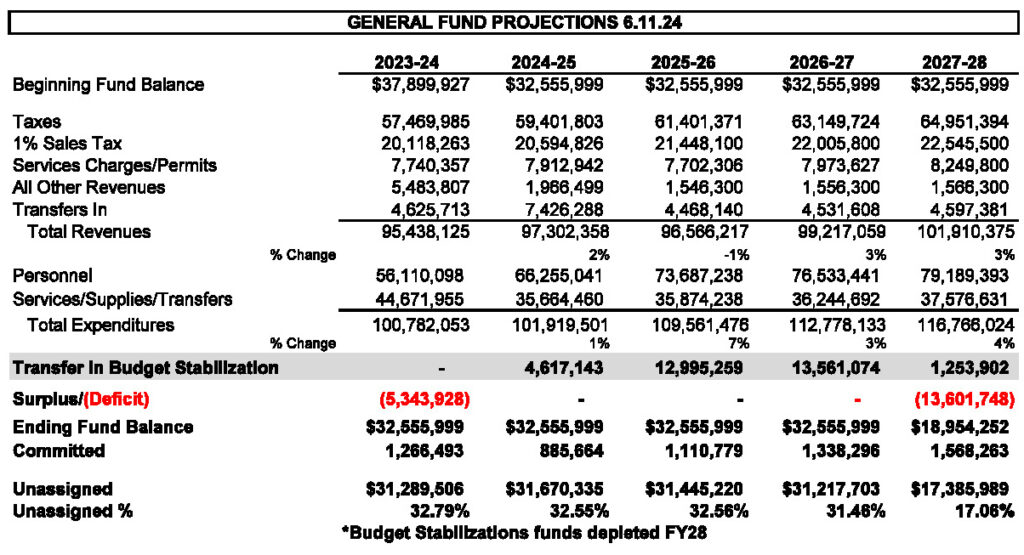Payton Perspective: For common-sense direction in Antioch vote Rocha, Freitas for new council majority with Bernal
Thursday, October 31st, 2024
For additional mature, respectful, responsible and experienced leadership
By Allen D. Payton, Publisher
After endorsing former Antioch City Manager Ron Bernal for mayor, yesterday, he’s just one of the three pieces needed to complete the puzzle that will provide our city with a new, common-sense direction. We also need former Antioch High School Principal Louie Rocha elected in District 2 and former Mayor and Councilman Don Freitas elected in District 3 to join Bernal in providing mature, respectful, responsible and experienced leadership with a new council majority.
Do I always agree with Rocha and Freitas? No. But on the major issues of dealing with crime by increasing our police force, helping grow our economy with well-
District 2 – King’s Dishonesty Disqualifies Her, Rocha is Right Choice for Council
In the race for the District 2 Council seat, which is being vacated by incumbent Mike Barbanica who is running for County Supervisor, I was willing to give Dominique King a chance, this year, after her failed campaign for school board against Rocha’s mother, Mary in 2022, in which she aligned herself with Councilwomen Monica Wilson and Tamisha Torres-Walker and the local, far-left, progressive wing of the Democratic Party, and was backed by Mayor Lamar Hernandez-Thorpe.
But I became quickly disappointed in her for starting off the campaign claiming to be something she’s not. In an effort to compete with Louie Rocha’s education bona fides, having 17 years of experience as the principal of Antioch High School, King is using the term “Educator” for her ballot designation, even though she hasn’t earned a four-year college degree, doesn’t have a teaching credential and isn’t a teacher at any school. She says that’s due to the fact she and her husband through their Lean In With The Kings marriage and family counseling business, she “educates” their clients. But just because the City Clerk granted her the right to use the term by making up an entire new definition for the word not found in any dictionary, King didn’t have to do that. She could have simply been honest and instead listed herself as an “Educational Advocate” and “Businesswoman”, which are both true.
Then, on the Form 460 finance statement for the period of July 1-Sept. 21, for King’s loan to her campaign, she didn’t show her and her husband’s business but instead, shows her occupation as “Columnist, Clayton Pioneer Newspaper,” which is very part time, as King has only written nine columns this year. Knowing the publisher, I guarantee you King isn’t earning a full-time salary from that local newspaper.
So, King’s stretch of the truth, which, frankly, is just a desperate act of dishonesty, is an automatic disqualifier as far as I’m concerned. But her alliances and views just make things worse. My fear if Dominique is elected is that she would merely continue helping lead Antioch on the same path it’s on, most likely siding with the two councilwomen who remain in their positions for the next two years until their terms are up.
As for King’s opponent, another first-time candidate for public office like Bernal, Louie Rocha, brings with him years of experience hiring and managing employees, dealing with budgets and all kinds of challenges, including interacting with the police department, as well as his community service, all while working collaboratively with others to achieve collective success. He truly has made a difference in Antioch and wants to continue to do so, this time, on the council.
Rocha’s slogan of “Focused on Our Future” is what we need for council members to do instead of the divisiveness of the past four years and Antioch’s history, to redirect the City from the path it’s currently on. His platform highlights the key priorities that need work and in correct order: Public Safety – “Hire Chief of Police, Restore police officer staffing, Reduce violent crime and Increase traffic enforcement;” Leadership & Governance – specifically, “Hire…other city leadership positions” and “Model civility, respect and integrity;” Economic Development – “Support local businesses, Grow new business development and Rebuild closed business buildings;” and Community Services, specifically, “Provide necessary resources to our unhoused community.”
Asked to clarify what he means by “Rebuild closed business buildings” Rocha said, “When businesses close up and leave their buildings they get boarded up and become blighted and attract homeless and others. We need to work to attract new businesses to fill the vacant buildings.”
Named after his father, Louis, Sr., the former principal has lived in Antioch for 55 years where he grew up and graduated from Antioch High, has a college degree, is married to Tammy who, together have twin adult sons. One son, Ruben is working with him on the campaign, and the other, Louis, III who, with his wife Ischia, made Jr. a grandfather of four, and they live in Florida.
Rocha says what we all know is true: “Decisions made today will determine the future of our beloved community. I’m committed to restoring city leadership and law enforcement staffing. I will focus on solutions to create a safe, healthy and inclusive community for all of our residents and businesses. Let’s move forward together and focus on our city’s future.”
From getting to know and working with him some over the past three decades, I know Rocha can and will do that for Antioch. That’s why endorsing him for City Council in District 2 is like the slogan in the Capital One Bank commercials, “the easiest decision in the history of decisions.” (No, the Herald wasn’t compensated for that mention – although it’s not a bad idea!). Seriously, please join me in doing the same when you vote in next Tuesday’s election.
To learn more about Rocha and his campaign visit https://louierocha.org.
District 3 –Webster Must Decide Which Side He’s On, Peterson’s a Possibility for Public Administration, Freitas for Antioch’s Future
In the race for the District 3 council seat, from which incumbent Lori Ogorchock was gerrymandered out, I know two of the candidates, Don Freitas and Antwon Webster, and have enjoyed getting to know about the third, Addison Peterson during the campaign. All three offer some good ideas and different life experiences. But I had to make a choice.
I endorsed Webster for the same seat in 2020 and he has an impressive background both in the military, as an Air Force veteran, and his work with the Army Corps of Engineers, as well as his ownership of a business in Houston, TX focused on management consulting, engineering and general subcontracting.
Webster has also served the community as a member of the City of Antioch Board of Administrative Appeals, for which he currently serves as vice chair, and serves as president of the Antioch-Chichibu Sister City Organization. He is also founder of the non-profit EastBay Forward Economic Development Association and is the former president of Kiwanis Club of the Delta-Antioch.
Plus, I like and agree with all of his platform. But my main challenge with Webster, as I have expressed to him, is he can’t seem to pick a side and is still wanting and willing to ally himself with the current mayor. So, should Antwon get elected, I don’t know on which side of the major issues he will end up nor how he will vote. That unpredictability is unsettling at a time that we need a new, dependable council majority and direction for our City.
As for Peterson, I appreciate the fact that he responded to and answered all of my questions about himself, his background and campaign platform. He has a compelling life story having been homeless as a child. While Peterson is new to the community, I don’t have a problem with that, as I only lived in Antioch three-and-a-half years before being elected to the city council, and as the top vote-getter, making me mayor pro tem from my first council meeting, and acting mayor during my second meeting, since Antioch’s mayor at the time, Joel Keller, had just been elected to the BART Board half way through his third term. Plus, at age 31, I was also the youngest council member in the county. So, his age and time as a resident in our city are not issues for me.
He also has a background in both government and non-profit organizations, currently working to represent farmers in California, which is a good thing. Plus, he’s educated with a Master’s in Public Administration.
My challenges with Peterson are his alliances and being backed by organizations such as the Alliance of Californians for Community Empowerment (ACCE) Action, which pushed for the unnecessary, citywide rent control policies and ordinances passed by the council, and is heavily backed by Democratic Party organizations, including the Marsh Creek Democratic Club which is also backing King and Mayor Lamar Hernandez-Thorpe. I have a serious challenge with any candidate injecting partisan politics into local, non-partisan office. Plus, his views align with the progressive wing of the Democratic Party, like Wilson and Torres-Walker. So, my concern is he will perpetuate the policies of the current council majority which has led to the city facing double-digit deficits in the next three fiscal years.
Plus, he wouldn’t commit to supporting the upscale housing in the Sand Creek area which are needed to complete Antioch’s housing mix and to attract business owners who will bring with them well-paying jobs for our residents to help them get out of the commute, each workday.
The other challenge I have with Peterson is, after multiple requests, he refused to provide me with his phone number, forcing me to only communicate with him via email. That’s frustrating for both a reporter and a constituent, as I live in District 3.
I wish Addison well in his future endeavors, but don’t think they should include serving on the city council, right now. My hope is he works in the private sector to gain more of an understanding of what it takes to create jobs and wealth, and the challenges businesses face with government regulation and taxation before running again. With his education and experience, perhaps, instead, he should consider a role in city management, rather than elected office. I hope we can still have the in-person meeting that we planned, for which I unfortunately, ended up being sick and had to reschedule but ran out of time.
My choice in the District 3 race is Don Freitas, Antioch’s former councilman and two-term mayor, who I have known for 30 years, since I first ran for and was elected to the city council seat his wife held and chose to vacate. He was, in turn, elected to my seat in 1998 when I chose to run for State Assembly instead. He also took my place on the East County and countywide transportation boards where he continued the work we had begun and helped complete the widening of Highway 4, as well as fund and build the State Route 4 Bypass / extension to Balfour Road in Brentwood, which included the new overpass and interchange with Highway 160 which travels north to the Senator John A. Nejedly-Antioch Bridge.
So, Freitas and I never served together, and Don and I haven’t always agreed on the issues. In fact, in 2008, I ran a write-in campaign for mayor to defeat him, because Jim Davis, who I was supporting, was running for a third time for mayor against Freitas but with an ineffective campaign. So, I jumped in, spent about $30,000 and beat up on Freitas’ record as mayor and garnered 8.5 percent of the vote, helping Davis win by just 1.5 percent.
But fortunately, Freitas didn’t go away and continued to be involved in the community. He came back four years later and ran for mayor again, even though I had encouraged him to instead run for council to demonstrate he’d learned some things about being more pro-business while out of office. But he lost that year to both Wade Harper who was elected, and the late Councilman Gary Agopian.
Since then, Freitas has continued to be involved in the community, primarily with the Antioch Historical Society, which I appreciate. While we still don’t see eye-to-eye on every issue, and over the years we have put our differences aside, worked together in some ways to benefit the community, we do agree on the main ones which he has outlined in his campaign. Freitas says, “My Top Priority: Provide essential services to residents. Protecting residents starts with a cultural change in our police department and filling patrol officer positions.” I agree. The other priorities of his campaign platform include filling the “budgeted, vacant City staff positions.” Plus, Freitas wants “a completely transparent public accounting of funds” and to “conduct a thorough financial audit.” That must be done to address the structural, annual budget deficit the City is facing.
Don not only brings with him his years in both government as the County’s Clean Water Manager and as an elected official, first as a Board Member for the Contra Costa Water District, but also the strength to stand up for what needs to be confronted, and the experience and results to get things done.
On his campaign website he writes, “Many issues in Antioch are not being addressed and citizens are demanding positive change. Residents are tired of the chaos that’s occurred during the past several years. The chaos has divided us – not unified us. Residents are frustrated with: dangerous and illegal sideshows, violations of public meeting laws by our elected officials, increased homelessness, police misconduct, and a revolving door of city staff departures that have deteriorated public services to citizens.” I completely agree.
The life-long Antioch native and resident whose father was a Contra Costa Deputy Sheriff, Freitas is married to former Antioch Councilwoman Cathryn Freitas, and they have one adult son, Patrick. Don is a graduate of U.C. Davis with a major in Political Science/Public Service.
Finally, he shares, “I want to be the change we need to turn our city around. Let’s be proud to call Antioch home.” I too want to be proud to call Antioch home, once again. Don’t you? If so, please join me in supporting and voting for Don Freitas for Antioch City Council in District 3.
To learn more about Freitas and his campaign visit https://freitasforantioch.org.
Bernal, Rocha and Freitas Must All Be Elected
To summarize my endorsements for Antioch’s council leadership, with the elections of Ron Bernal as mayor and Louie Rocha in City Council District 2 and Don Freitas in District 3, Antioch can and will have a new majority of mature, respectful, responsible and experienced leadership, providing our city with the common-sense direction it so desperately needs.


































